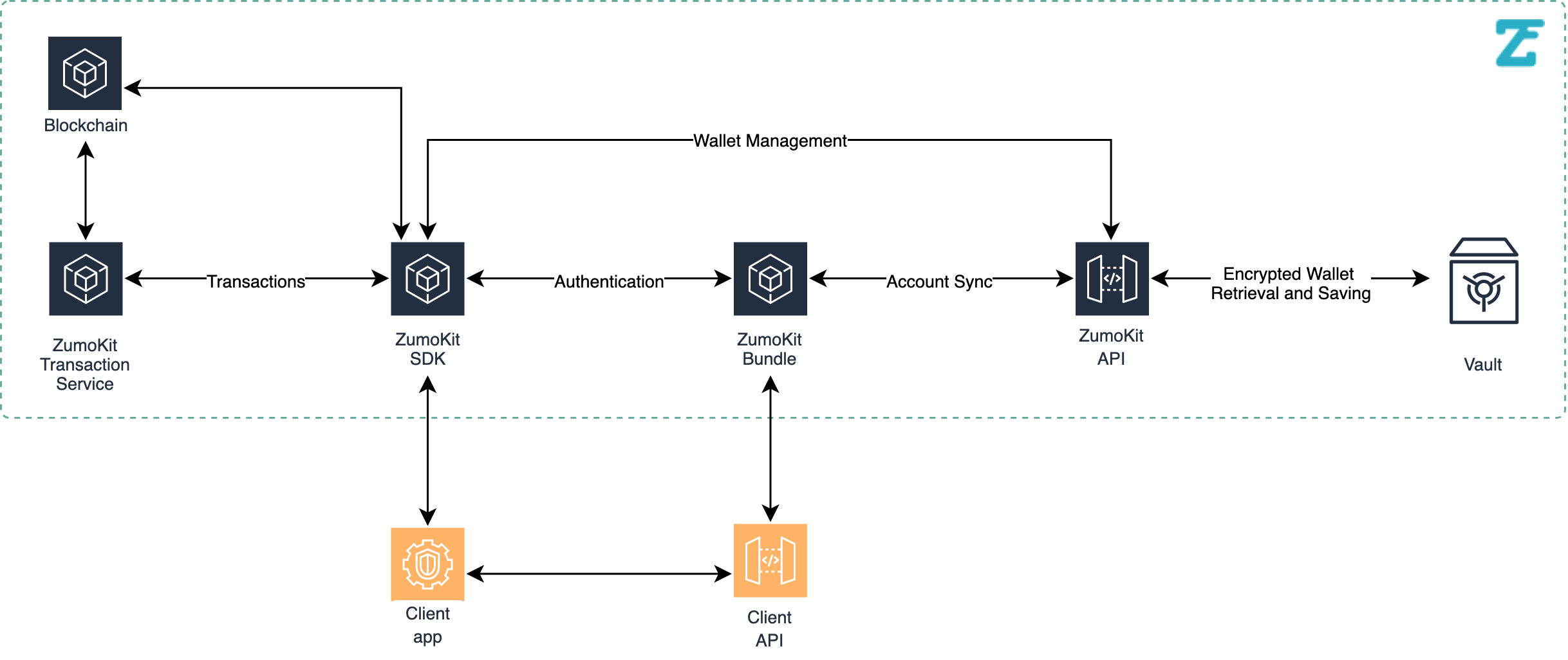What Is ZumoKit?
ZumoKit provides Android, iOS and React Native libraries for the integration of the Zumo platform within native applications. The core library is written in C++ for maximum interoperability between platforms. Android, iOS, and React Native libraries are then wrapped in the corresponding Java, Objective-C or JavaScript wrappers which enables easy integration into existing projects.
To get started with ZumoKit, you'll need the credentials provided to you by your account manager at Zumo. Then, select the the relevant platform you'd like to integrate with. Currently ZumoKit supports the following platforms:
Alongside the client-side SDK, there is also a server-side component to ZumoKit. This will need to be integrated into your existing backend system.
Structure
As mentioned, ZumoKit comes in two parts – a client-side SDK that will integrate into your native application, and a server-side SDK that will integrate with your backend/API.

ZumoKit Client-Side Library
All functional interactions are done through our client-side library, that can be integrated with your Android, iOS or React native application.
After basic initialization and authentication, you will be able to create new wallets and interact with multiple blockchains.
Alongside providing basic functionality of creating wallets, sending and receiving new transaction you also have access to blockchain utilities functions.
ZumoKit Server-Side Library
Your existing API handles complete user management, our serverside library enables us to hook into those processes.
Main functionality of server-side library is user authentication. When your user sucessfuly logins into your platform, serverside library makes sure that user is also authenticated with ZumoKit environment.
After installation and configuration of library on your API, all subsequent interactions with that library are handled automaticly by client-side library.
